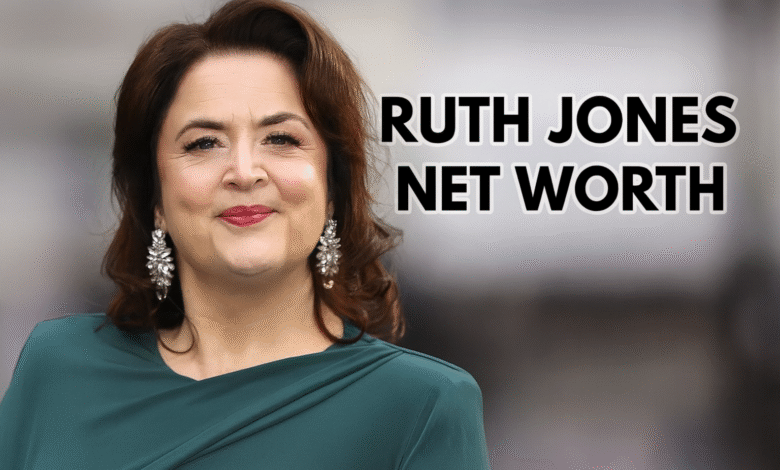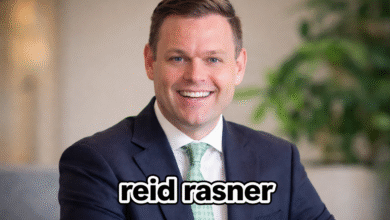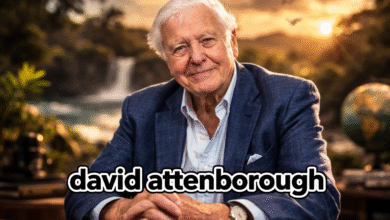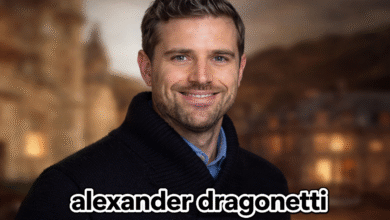Ruth Jones Net Worth: From Gavin & Stacey to a Quiet Fortune

Ruth Jones is one of those rare figures in British entertainment who manages to shine without ever chasing the limelight. Whether it’s her iconic portrayal of Nessa Jenkins, her scriptwriting genius behind Gavin & Stacey, or her career as a novelist, Jones has built a life and fortune through consistent hard work, creative control, and smart business choices. Today, Ruth Jones net worth is estimated to be between £4 million and £6 million, a fortune crafted not with extravagance, but with steady vision and integrity.
Early Life and Steady Beginnings
Born in Bridgend and raised in Porthcawl, Ruth Jones never had the typical “overnight success” story that many entertainers experience. Instead, her career began in regional theatre and television, where she quietly honed her craft. Her natural talent and warm Welsh charm resonated with audiences, and little by little, she built her path into mainstream recognition.
Her breakthrough didn’t come through one explosive role, but rather a gradual journey — a testament to the idea that persistence and patience can be just as powerful in showbusiness as overnight fame.
The Game-Changer: Gavin & Stacey
The turning point in her career, and perhaps the single greatest contributor to Ruth Jones net worth, was Gavin & Stacey. Co-created and co-written with James Corden, the series wasn’t just another sitcom — it became a British cultural phenomenon.
Jones not only starred as the unforgettable Nessa Jenkins but also held the rights and credits as a writer and co-creator. This dual role ensured she wasn’t just an employee on the show but also a financial stakeholder. That creative ownership translates into royalties from syndication, streaming platforms, DVD sales, and special episodes that continue to air each holiday season.
Every Christmas, when audiences settle in to watch reruns or the latest special, Jones’ investment in her own work continues to generate income. It’s proof of how intellectual property can build long-term wealth.
Acting Career Beyond Nessa
Although Gavin & Stacey remains her crown jewel, Ruth Jones’ acting career has been rich and diverse. She appeared in the series Fat Friends, which first brought her widespread recognition, and went on to feature in Little Britain, The Street, and the comedy-drama Stella. Each role not only showcased her versatility but also contributed to her financial security through consistent acting fees and contracts.
Still, acting fees alone rarely create multi-million fortunes. The true growth of Ruth Jones net worth comes from combining acting with writing, producing, and publishing.
Writing and Producing: The Real Income Streams
Unlike many actors who rely solely on on-screen work, Jones has long understood the power of creating her own content. By writing half of the Gavin & Stacey scripts, she secured a permanent place in the show’s legacy and profit streams.
Beyond writing, Jones has also stepped into the production side of television. Industry insiders suggest she maintains equity stakes in some of her projects. These backend deals mean she doesn’t just get paid upfront — she continues to benefit financially long after a show has aired.
This combination of roles — actress, writer, and producer — forms the bedrock of her wealth, proving that true success in entertainment often comes from owning the story, not just performing it.
Novelist Success: From Screen to Page
In recent years, Ruth Jones has added another dimension to her career: novelist. Her debut novel charmed readers across the UK, and subsequent titles solidified her reputation as a gifted storyteller.
Book publishing brings in advances, followed by royalties from sales. While the literary world may not generate the same income as primetime television, Jones’ novels have developed a loyal readership. This ensures a steady stream of income and demonstrates her ability to transition seamlessly between mediums.
The fact that her novels reflect her authentic voice and resonate with audiences shows her brand of creativity is versatile and enduring.
Lifestyle and Real Estate
Despite her considerable fortune, Ruth Jones is not known for flashy spending or extravagant living. Reports suggest she resides in a comfortable home in South Wales, close to her roots. Far from yachts and Hollywood mansions, her lifestyle is grounded, prioritising privacy, family, and personal comfort.
Her spending habits reflect her personality: down-to-earth, practical, and quietly confident. This modest approach has helped preserve her wealth rather than deplete it on fleeting luxuries.
Awards and Recognition
Awards and accolades have also contributed indirectly to Ruth Jones net worth. Recognition from BAFTA and British Comedy Awards boosts her profile and market value. Producers and publishers are more inclined to invest in talent with proven track records, and Jones’ decorated career makes her a trusted name in both television and publishing.
This respect within the industry has long-term benefits, opening doors to more lucrative deals and opportunities.
Charitable Work and Mentorship
Though not widely publicised, Ruth Jones is believed to be actively involved in supporting charitable causes, particularly those connected to Welsh arts and culture. She has mentored emerging writers and uses her influence to promote Welsh voices.
Her quiet philanthropy reflects the same values that underpin her career: sincerity, loyalty, and an emphasis on community.
Ruth Jones Net Worth Compared to Co-Stars
When compared to her Gavin & Stacey co-stars, Ruth Jones’ fortune may seem modest. James Corden, with his Hollywood career and The Late Late Show, has likely accumulated a much larger net worth. Rob Brydon, with his prolific voiceover and panel show work, also commands significant income.
However, Jones’ wealth is uniquely self-driven. She has built her millions through diversified creative streams within the UK, rather than relying on international stardom. This gives her a secure and sustainable financial foundation.
The Road Ahead
Ruth Jones shows no signs of slowing down. With whispers of new television projects, potential BBC collaborations, and ongoing success as an author, her career continues to evolve.
The enduring popularity of Gavin & Stacey also means there’s always the possibility of future specials — each one a guaranteed ratings success and financial windfall.
As a creative force who owns her work, Jones is positioned to keep growing her fortune in the years to come.
Final Thoughts
The story of Ruth Jones net worth is not just about the millions she has earned but about how she earned them. Her fortune has been built carefully through writing, producing, acting, and publishing — all while staying true to her roots and values.
Rather than chasing fame or luxury, Jones has prioritised creativity, ownership, and authenticity. That’s what makes her wealth truly remarkable.
In a world full of celebrity excess, Ruth Jones proves that steady, thoughtful success not only builds a legacy but also creates lasting financial security.
FAQs
What is Ruth Jones net worth in 2025?
Her net worth is estimated to be between £4 million and £6 million, based on acting, writing, producing, and book publishing.
How did Ruth Jones make her money?
She earns from acting roles, scriptwriting, royalties from Gavin & Stacey, book deals, and production-related income.
Did Gavin & Stacey make Ruth Jones rich?
Yes. As co-writer, co-creator, and star, she continues to earn royalties and residuals from the show’s ongoing popularity.
What is Ruth Jones’ lifestyle like?
She leads a modest, grounded lifestyle in Wales, avoiding extravagant spending and focusing on her craft.
Will Ruth Jones net worth grow in the future?
Very likely. With upcoming projects and continued interest in Gavin & Stacey and her novels, her fortune is expected to increase.
Read also: Miriam Wilcox: A Journey of Resilience, Privacy, and Quiet Courage



